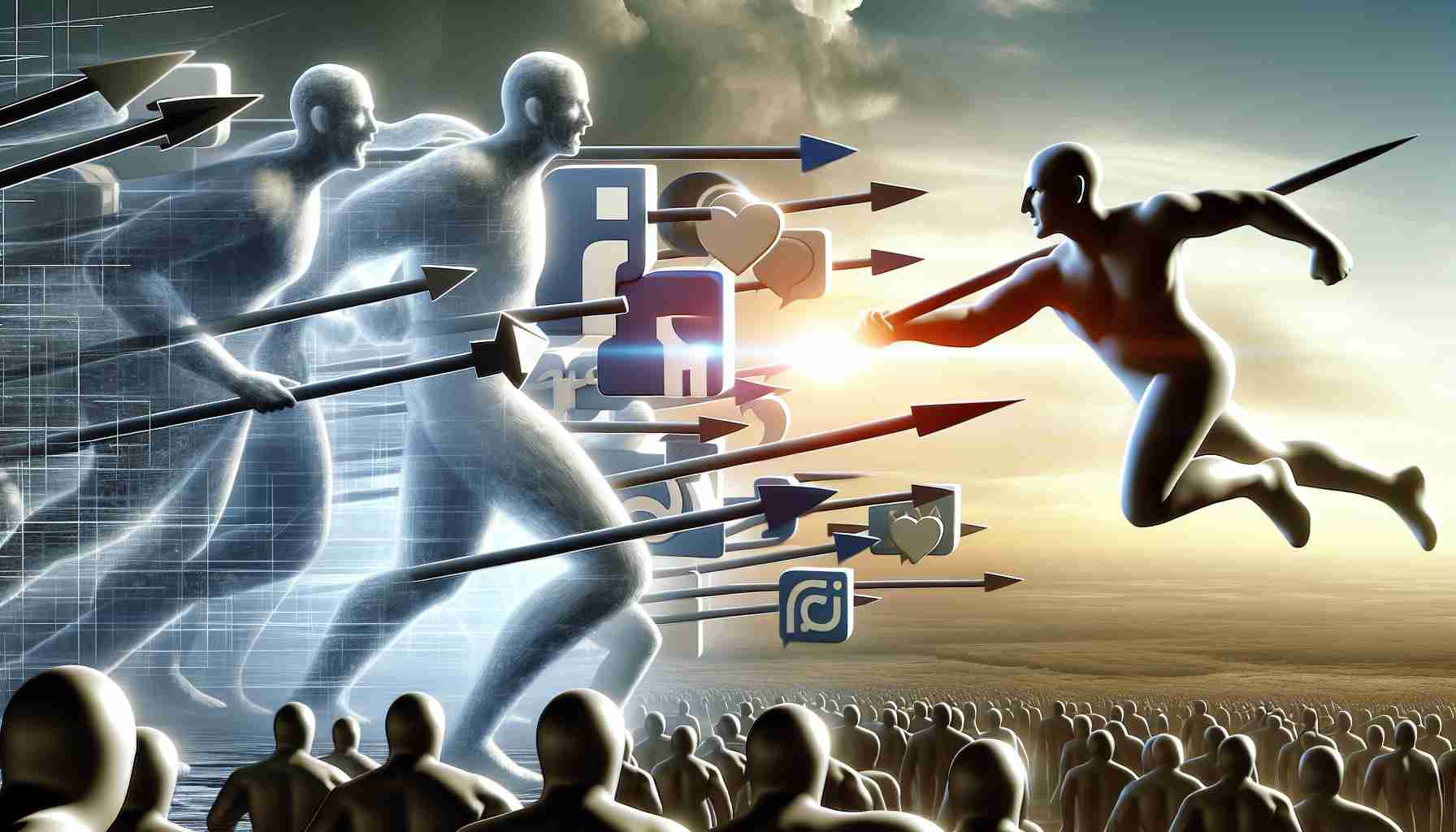In a striking development, Mark Zuckerberg has found himself in the crosshairs of former President Donald Trump’s supporters. These loyalists have grown increasingly frustrated with the influence of the technology sector on the political landscape, particularly as it relates to the MAGA movement.
Zuckerberg, as the head of Meta, embodies the concerns surrounding tech monopolies and their control over information dissemination. Many within Trump’s base feel that such influencers are undermining their interests and goals. This sentiment is part of a larger backlash against major tech personnel who they believe are out of touch with mainstream American values and political sentiments.
Critics argue that these tech leaders are shaping the narrative in a way that could be detrimental to the interests of conservative voters. As the political divide grows, the animosity towards figures like Zuckerberg amplifies, signaling a potential rift between tech giants and traditional conservative allies.
This situation raises important questions about the future of political discourse and the role of technology in shaping public opinion. With tensions escalating, it remains to be seen how this conflict will evolve. As the tech world continues to wield significant power, the MAGA movement is searching for ways to navigate this evolving landscape while safeguarding their ideals and message.
The Tech Wars: Mark Zuckerberg and the MAGA Movement Clash
Understanding the Conflict: Tech Influence and Political Landscape
The ongoing tension between the MAGA movement, particularly its supporters, and prominent tech figures like Mark Zuckerberg highlights a significant shift in the political narrative. As technology companies, especially giants like Meta, continue to shape discourse, various political factions are grappling with their influence.
Features of the Conflict
1. Tech Monopolies and Political Control: Many supporters of the MAGA movement are increasingly vocal about their belief that tech monopolies, led by figures such as Zuckerberg, exert undue influence over political discourse. With the rise of social media, these platforms have become key players in disseminating information, and critics assert that this power can distort political realities.
2. Conservative Backlash: The frustration from Trump’s supporters stems from what they see as a bias against conservative viewpoints on major platforms. As political polarization intensifies, the sentiment that these companies do not represent or understand traditional American values grows.
3. Future of Political Discourse: The conflict raises critical questions about the extent to which technology shapes public opinion. As tech platforms serve as modern public squares, their moderation practices and algorithms significantly influence which voices are amplified or silenced.
Pros and Cons of the Current Tech-Political Climate
Pros:
– Increased Awareness: The scrutiny of tech giants may lead to greater transparency and accountability in how they operate, catering to a wider array of political beliefs.
– Emerging Platforms: The dissatisfaction with mainstream social networks may lead to the rise of alternative platforms that prioritize free speech and offer more diverse content.
Cons:
– Widening Divide: The growing distrust in tech companies can further polarize public opinion, making bipartisan dialogue increasingly challenging.
– Censorship Concerns: Accusations of bias may lead to calls for excessive regulation that could stifle free expression rather than promote it.
Emerging Trends in Political Social Media Usage
– Shift to Conservative Platforms: Platforms like Parler and Gab have gained popularity among users who feel sidelined by mainstream networks. This trend could continue as users seek spaces that align more closely with their values.
– Enhanced Privacy Protections: There is a growing demand for tech companies to enhance privacy measures to secure users’ data and prevent unwarranted censorship.
Insights into the Future
As the political landscape continues to evolve, the tension between technology and politics suggests that future interactions may involve greater scrutiny of tech companies. Predictions point to a rise in regulatory discussions aimed at ensuring that these dominant players do not suppress free speech under the guise of moderation.
Conclusion
The clash between tech leaders like Zuckerberg and the MAGA movement reflects deeper societal divides and raises crucial questions about the role of technology in shaping political narratives. As this relationship unfolds, both the tech industry and political movements must navigate the intricate balance of influence, representation, and freedom of speech.
For more insights on the impact of technology on politics, visit Meta.
